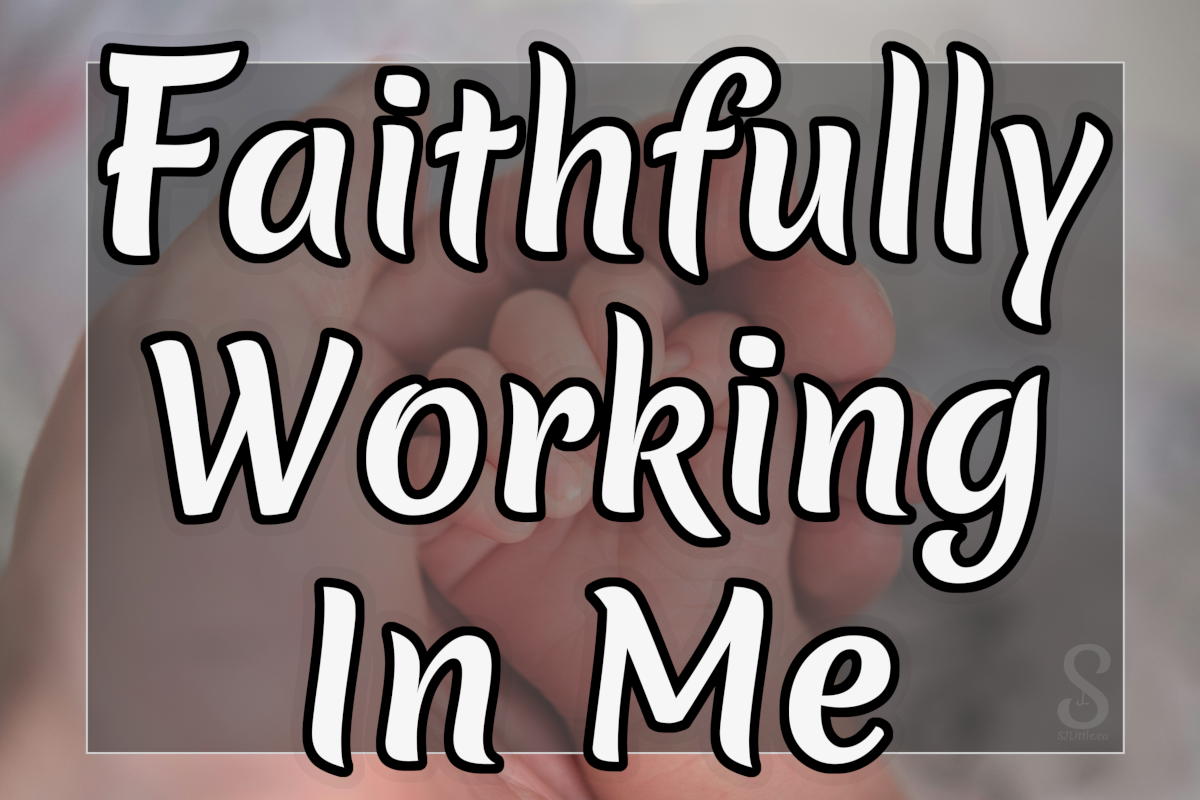
Having used the toilet, I pulled the lever to flush, but nothing happened. There was no tension on the lever.
I frowned. Something was evidently wrong with the toilet. Not a fun problem, and in a house we’d only recently moved into.
With a sigh, I closed the toilet seat lid and lifted the top off the tank.
I peered in, frowned, then looked again. Something was in the toilet tank.
What was a small plastic jug doing in the toilet tank?
I looked closer at the plastic jug, its lid barely above the water line. It looked like a familiar shape.
Hesitantly, I reached into the cold water and pulled out… apple cider vinegar?
Who puts a full jug of apple cider vinegar in their toilet tank?
Various theories rushed through my mind – as an author, I can come up with some pretty wild ideas.
Was the previous owner hiding something? Perhaps drugs or something valuable? Did they leave it behind accidentally when they moved?
Yet the container appeared to be still full of apple cider vinegar – likely never opened.
The previous people in this house were respectable and smart. Perhaps there was some other reason? A logical helpful reason rather than something sinister.
I spotted the problem I had originally opened the tank for – a break in the chain causing the failure to flush. Based on the rusted safety pin at the end of the chain, it had broken and been fixed before.
Reaching in, I pulled the chain to complete the flush.
When my husband returned from work, I wasted little time before telling him about the toilet troubles and my discovery.
After taking a look, we decided to check our other similar toilet tank.
Sure enough, it also had something in it but this time it was two standard plastic water bottles filled with sand.
My husband, who is very intelligent, suggested right away that the previous people may have added them to displace some of the water in these large, not-so-water-efficient, toilets.
For those unfamiliar with how this type of toilet functions, here’s a quick toilet 101.
The tank on the back of the toilet sits full of water. When you press the lever to flush, a release valve is opened and all the water rushes into the toilet bowl washing away whatever is there. Once the water has left the tank, the release valve closes allowing the tank to refill with water.
This particular toilet had a large water tank – larger than it needed. Therefore, the previous people had added a jug of apple cider vinegar into the tank to displace some of the water. This allowed the tank to reach “full” without using as much water.
To the untrained eye, the toilet still flushed effectively. However, it was conserving water – a helpful thing for both our city’s water supply and our utility bill.
It wasn’t until a few months later that it occurred to me that this toilet held an important allegory for me to learn from.
Although in the story above, the apple cider vinegar was a good, simple, and inexpensive improvement to the toilet, in my life an apple cider vinegar jug displacing the living water is a bad thing. Let me explain.
Jesus taught the crowds about living water in John 7:37b-39a:
“Jesus stood up and cried out, ‘If anyone thirsts, let him come to Me and drink. Whoever believes in Me, as the Scripture has said, “Out of his heart will flow rivers of living water.”‘ Now this He said about the Spirit, whom those who believed in Him were to receive…” (ESV)
I don’t know about you, but I want this living water in my life and overflowing out of me. I want to be filled with it fully. I don’t want something displacing part of the living water that could otherwise flow through me.
Sure, when there is displacement in my life, it may still appear the same on the outside to the untrained eye, but the power and effectiveness will be decreased.
I want to be fully effective in the ministries God has given me. That is only possible when fully filled with the living water so that it may flow through me.
So, what does the apple cider vinegar jug represent in me? Unless I stop and take a look inside, I’ll never know. I probably won’t even realize there is a jug displacing the living water in me at all!
Rather, I must ask God to reveal this jug to me. Often He does so through prayer, study of the Bible, and fellowship with other Christians.
As I went to write this allegory, I took a moment to pray asking God to reveal my jug of apple cider vinegar. As I did so, I added “but please don’t reveal it to me through trial and hardship.”
That right there was my answer. My love of ease and comfort is the apple cider vinegar jug that is displacing some of the living water in me.
With God’s help, I will be able to remove this jug from my life.
Then it will be time to ask Him if there is another jug displacing the living water within me.
What about you? Will you dare to take a moment to ask God if there is a jug of apple cider vinegar displacing His living water in you?
As David wrote:
“Search me, God, and know my heart;
test me and know my concerns.
See if there is any offensive way in me;
lead me in the everlasting way.”
(Psalm 139:23-24 CSB)





